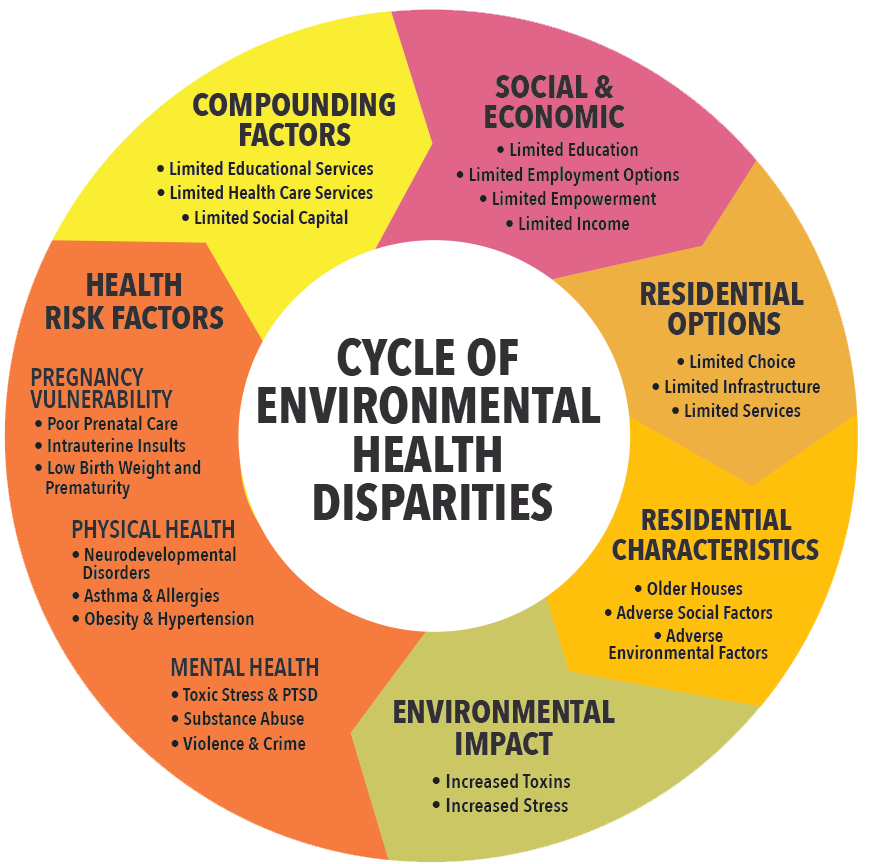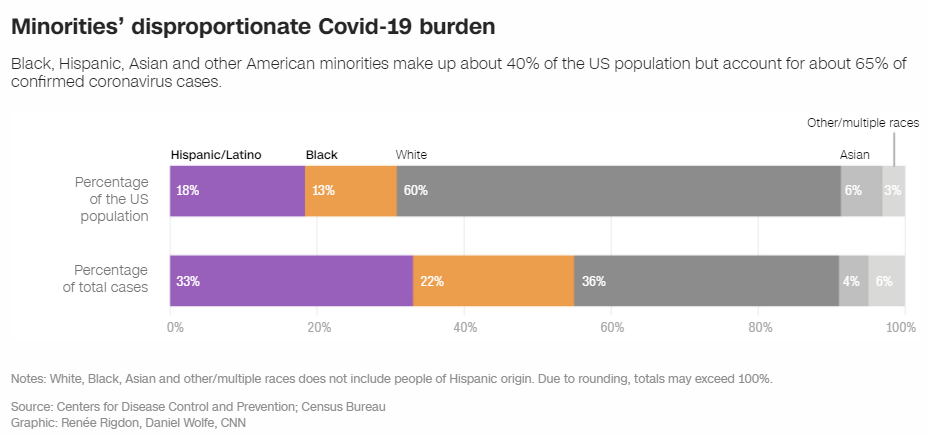SciTober 2020: Breaking the Cycle of Environmental Health Disparities
SciTober Fest 2020 had 5 amazing breakout topics this year, stemming from one of our partner organizations, Break the Cycle of Health Disparities, Inc. BCHD’s Break the Cycle of Children’s Environmental Health Disparities Program supports an interdisciplinary set of student-driven research projects that explore the social, economic and environmental factors that adversely affect children’s health and well-being, creatively develop strategies to reverse this situation, and promote improved health and well-being for this group of children. In the process, BCHD cultivates the development of future leaders.
Three topics were presented about the environmental impacts on human health and two about children with disabilities.

Dr Leslie Rubin, a Developmental Pediatrician affiliated with Morehouse School of Medicine and Emory University in Atlanta, Georgia, will provide an overview of Breaking the Cycle of Environmental Health Disparities. In 2004, he started a program called Break the Cycle of Children’s Environmental Health Disparities, which promotes research on the social, economic and environmental determinants of health and cultivates leadership for the future among university students from across the country and around the world.
The Environmental Impact on Human Health
The environment that we live in affects our health and well-being. For those that live in poverty, an unhealthy environment can contribute to being trapped in a cycle of poverty. For example: bad air quality is correlated with increased chronic illnesses; being out sick leads to poor performance in work or school; poor performance leads to an inability to get ahead; this leads to living in unhealthy environments; and the cycle continues.
The effects of this vicious cycle have been highlighted by the COVID-19 epidemic. Chronic health conditions, which are more prevalent in those residing in environmentally-poor living conditions, have caused a disproportionate number of people of color to die from Covid-19 (on top of unequal access to healthcare and testing).
While there are so many things that need fixing right now, the journey of a 1000 miles begins with one step, and there are several positive things we can all do, right now, to create change and build good habits that are healthy for us, our communities, AND the earth.

This year has been overwhelming and while there are so many things that need fixing right now, the journey of a 1000 miles begins with one step. There are several positive things we can all do, right now, to create change and build good habits that are healthy for us, our communities, AND the earth. And they are not complex.
Take Action
While the causes are many, there are simple steps all of us can take to provide for a healthier environment. Below we provide things that everyone can do.
- Complete the census and vote: distribution of resources requires accurate representation.
- Add a capful of vinegar or baking soda (but not both – vinegar and baking soda together make the ‘volcano’ science experiment) to ~ 1 quart of water and soak your vegetables/fruits for about 5 minutes prior to preparing them. This will reduce the amount of pesticide residues on the produce and is as effective as purchasing organic produce (but without the pricetag!).
- Healthy habits are easier with a community. And communities can effect lasting change. Walking around densely populated neighborhoods was a mechanism for success with Cada Paso. The barrier to entry was low (walk outside your apartment) and the reward was high (socialize with people, go to local businesses). Brainstorm ideas with your work-out buddy, book club, social group, bible study, bus-stop parents, etc. to get people moving and build community. Remember low effort and high reward are key.
Advocate
Involving yourself in your community and the local legislative process are ways to effect lasting change.
Write your legislator and encourage increased oversight in environmental chemicals, especially clearer labels on cleaning products that everyone uses (cleaning products, air filters, cooking surfaces) and environmental quality requirements for tenants (i.e. amount of mold, lead, chemicals, pesticides that can be in the air and paint of leased apartments and homes).
Materials to Distribute
Distribution materials about topics that everyone can take action on and are listed here: https://www.publichealth.columbia.edu/research/columbia-center-childrens-environmental-health/center-health-education-materials and include removing BPA from your life, green cleaning, healthier indoor air, toxic-free shopping choices, eating fresh, reducing stress, and creating change.
Increasing your understanding of Children with genetic disorders, chronic diseases, or disabilities
Due to advances in health care and increased care services, children with disabilities and rare genetic disorders are now living longer and more complete lives. To receive the best care and create the best conditions for their children to thrive, families have to navigate a complex labyrinth of services and departments.
As children with disabilities and disorders are more present in the community and in classrooms, it is important to remember that they have a right to be seen as “people first” and to be treated with respect and dignity. Poor treatment ranges from outright discrimination to well-meaning “help” that causes more harm than good.
Increased understanding of services available and the needs of children is something all of us can do to create a more welcoming environment.
Take Action
Complete the census and vote: distribution of resources requires accurate representation.
Learn about children with disabilities and chronic conditions to increase your (and your children’s) empathy and understanding
- https://www.verywellfamily.com/how-to-talk-to-kids-about-disabilities-4142349
- https://www.familyeducation.com/life/empathy/6-tips-talk-your-kids-about-disabilities
- https://eclkc.ohs.acf.hhs.gov/children-disabilities/specialquest/preschool-inclusion-series
- https://connectmodules.dec-sped.org/
- https://rarediseases.info.nih.gov/diseases/pages/31/faqs-about-rare-diseases
Advocate
Advocating for increased funding and understanding of the importance of inclusive settings for all young children. Advocacy programs include the following:
- Georgia Early Education Alliance for Ready Students (GEEARS; www.gears.org)
- Georgia Department of Early Care and Learning (DECAL; www.decal.ga.gov)
- Division for Early Childhood of the Council for Exceptional Children (DEC; www.dec-sped.org)
- National Association for the Education of Young Children (NAEYC; www.naeyc.org)
- https://rarediseases.org/for-patient-organizations/ways-partner/advocacy/
- https://rareadvocates.org/
- https://www.cff.org/Get-Involved/Advocate/
Further Reading
Learn about the needs of children with disabilities and their families.
